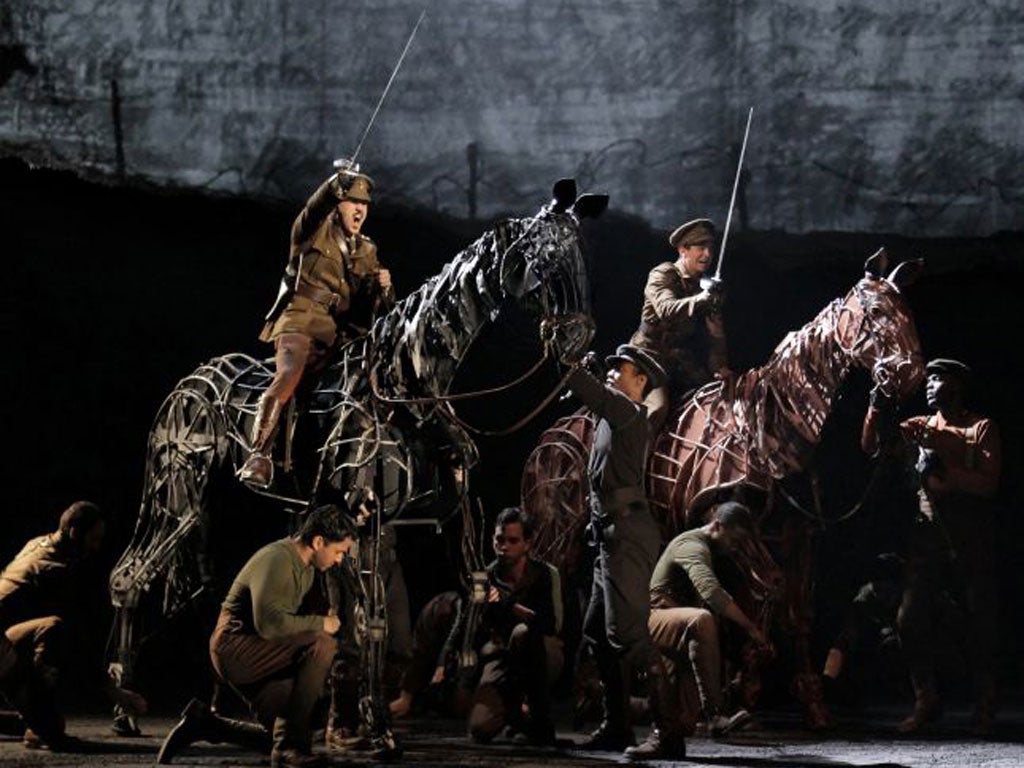Michael Morpurgo: War Child to War Horse, By Maggie Fergusson Fourth Estate, £18.99
A portrait of the first Children's Laureate from his difficult childhood to a prolific career

Michael Morpurgo is a remarkable person. Liberal in outlook but authoritarian in delivery, he has written over a hundred children's books including the currently famous War Horse. With his wife Clare, he also founded and ran the charity Farms for City Children, providing over 100,000 inner-city schoolchildren with experience of a week's work in the traditional countryside of Devon.
As Children's Laureate, a post he was part-instrumental in creating, he toured the country with fearsome energy, entertaining schools everywhere with his unique style of dramatic story-telling.
A born leader, had he been present at whatever age as a character in William Golding's melancholy fable Lord of the Flies, the otherwise doomed island would surely have been run with exemplary efficiency and decency. These achievements are well described in Maggie Fergusson's biography, which also contains numerous family photographs. But despite the cosy relationship she has with her subject she offers him no comfortable ride. Every aspect of Morpurgo's life is covered, starting with his childhood. His mentally fragile mother and competitive stepfather constantly discouraged him from hearing anything about his biological father.
Morpurgo has now written seven new short stories inspired by reading sections of this biography as it was being written. These are included in the finished work. As with his novels, some work better than others.
Fergusson mentions Morpurgo's struggle with depression and the long-term problems he now feels partially responsible for within his immediate family. There is nothing new in children's writers having difficulties with their own offspring.
As Samuel Butler once observed of clergymen, they too work at home and are therefore hard to escape from even when a short breathing space might be a good idea. Being professionally involved with children also runs the risk that those in the family sometimes come off feeling second-best, which happened with Enid Blyton's daughters.
As a natural performer Morpurgo has always given everything. Had his first father, an actor, remained in his life then his son could well have ended up on the stage.
Doing right by legions of other children can be an exhausting business, occasionally leaving the tank dangerously low for home life. There was also the problem of near-neighbour Ted Hughes, for Morpurgo a valued and beloved friend but for his sons increasingly resented as an egotistical interloper.
There is little about the novels here, which is a shame, as some are much too good to miss. The War of Jenkins' Ear and The Butterfly Lion are both compelling stories set in boarding schools and Private Peaceful is a fine anti-war novel soon to be released as a film.
Aged 70 next year, Morpurgo has worked hard for his success. This compassionate and appreciative biography of a good man is nothing less than his due.
Subscribe to Independent Premium to bookmark this article
Want to bookmark your favourite articles and stories to read or reference later? Start your Independent Premium subscription today.

Join our commenting forum
Join thought-provoking conversations, follow other Independent readers and see their replies